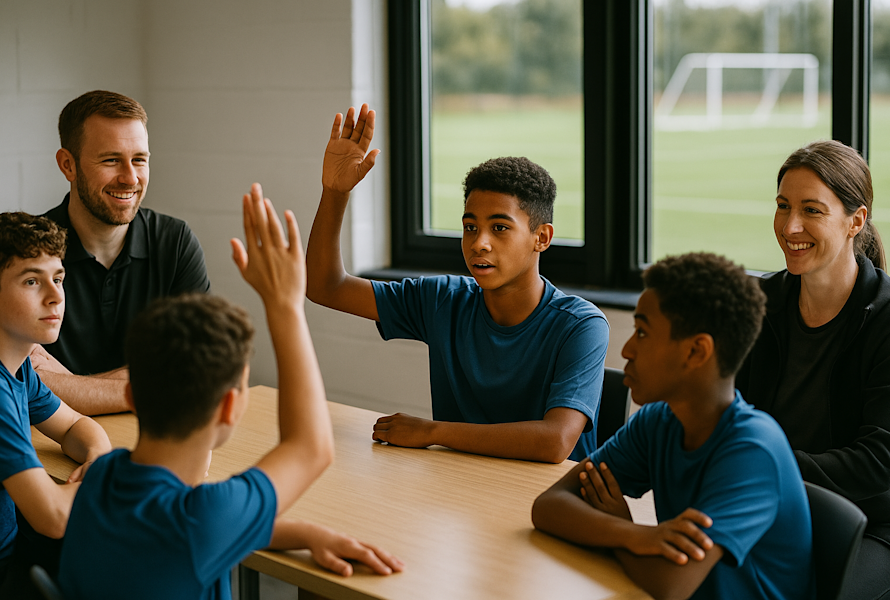Football (soccer) is an exciting and rewarding sport for kids, helping them stay active while learning valuable skills like teamwork, discipline, and coordination. Whether your child is just starting or looking to improve their game, proper training is essential for development. By focusing on the right techniques, young players can build a strong foundation and gain confidence on the field. This guide provides essential football training tips for beginners, ensuring kids develop their skills in a fun and structured way.
1. Mastering Basic Football Skills
Every young footballer should start by learning fundamental skills like dribbling, passing, shooting, and ball control. Practicing simple drills such as dribbling around cones, passing against a wall, and shooting at a target can improve accuracy and technique. A strong foundation in these areas makes it easier for kids to advance to more complex moves. Coaches in junior football training programs recommend regular repetition and focus on ball coordination to enhance overall performance. By mastering these basics, young players build confidence and feel more comfortable on the field.
2. Developing Stamina and Fitness
Football requires excellent endurance, strength, and agility. Young players should engage in football fitness exercises such as sprinting drills, ladder exercises, and jumping routines to improve their speed and coordination. Regular warm-ups and stretching help prevent injuries and prepare muscles for movement. A well-balanced diet and proper hydration also play a key role in boosting energy levels. Football academies in Australia emphasize the importance of fitness in youth football training to ensure players can perform at their best during matches.
3. Understanding Positioning and Game Awareness
Football is not just about kicking the ball—it’s about strategy and positioning. Young players should learn to read the game, find open spaces, and anticipate their opponent’s moves. Coaches often teach kids about different positions, such as forwards, midfielders, and defenders, to help them understand their role in a team. Small-sided games and tactical drills are excellent for improving awareness and decision-making. By developing football IQ, young players can react faster and make smarter plays during a match.
4. Practicing Teamwork and Communication
Football is a team sport, and success depends on good communication and teamwork. Encouraging kids to call for passes, give signals, and support teammates helps them build strong relationships on and off the field. Junior football clubs in Australia focus on teaching young players how to work together through passing drills and team-building exercises. Respecting coaches, teammates, and referees also teaches sportsmanship and discipline, which are valuable life skills beyond football.
5. Staying Consistent and Having Fun
The most important football training tip for young players is to enjoy the game. Consistency in practice is key to improvement, but it’s also important to keep training fun and engaging. Parents and coaches should encourage kids to play regularly, whether in structured training sessions or casual backyard games. Joining youth football programs or local football leagues in Australia can provide young players with valuable match experience. When kids enjoy the sport, they stay motivated, work harder, and develop a lifelong passion for football.
Conclusion
Football training for young players should focus on building skills, fitness, game awareness, teamwork, and consistency. By practicing regularly and following structured training routines, kids can improve their abilities and gain confidence on the field. Whether your child dreams of playing in A-League academies or just wants to have fun with friends, football is a fantastic way to stay active and develop essential life skills. Encourage your child to play, train, and enjoy the beautiful game—it’s a journey filled with learning, excitement, and growth!


